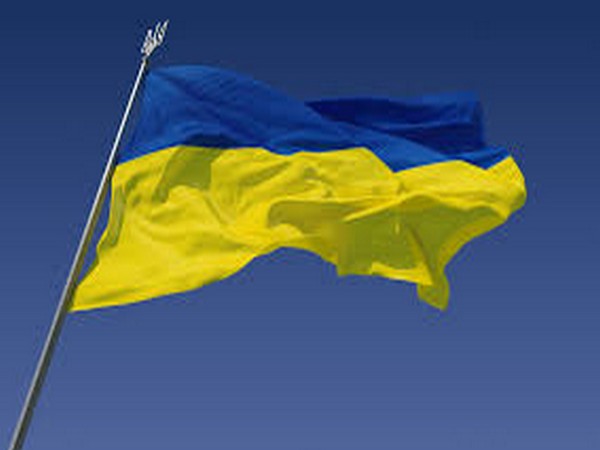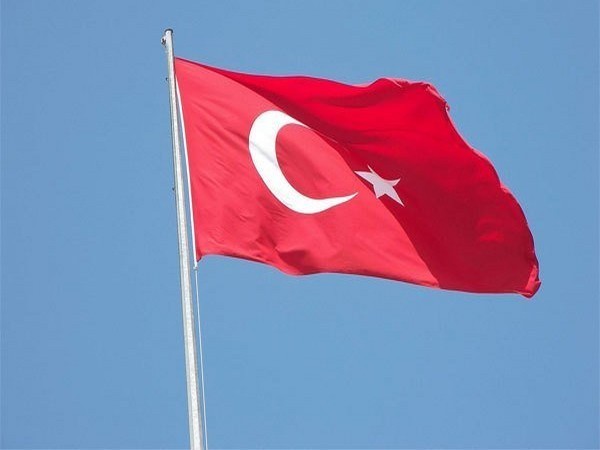
World's war on greenhouse gas emissions has a military blind spot
Jul 10, 2023
Washington [US], July 10: When it comes to taking stock of global emissions, there's an elephant in the room: the world's armed forces.
As temperatures hit new highs, scientists and environmental groups are stepping up pressure on the U.N. to force armies to disclose all their emissions and end a long-standing exemption that has kept some of their climate pollution off the books.
Among the world's biggest consumers of fuel, militaries account for 5.5% of global greenhouse gas emissions, according to a 2022 estimate by international experts.
But defence forces are not bound by international climate agreements to report or cut their carbon emissions, and the data that is published by some militaries is unreliable or incomplete at best, scientists and academics say.
That's because military emissions abroad, from flying jets to sailing ships to training exercises, were left out of the 1997 Kyoto Protocol on reducing greenhouse gases - and exempted again from the 2015 Paris accords - on the grounds that data about energy use by armies could undermine national security.
Now, environmental groups Tipping Point North South and The Conflict and Environment Observatory, along with academics from the British universities of Lancaster, Oxford and Queen Mary are among those pushing for more comprehensive and transparent military emissions reporting, using research papers, letter campaigns, and conferences in their lobbying drive.
In the first five months of 2023, for example, at least 17 peer-reviewed papers have been published, three times the number for all of 2022 and more than the previous nine years combined, according to one campaigner who tracks the research.
The groups also wrote in February to the U.N. Framework Convention on Climate Change (UNFCCC) calling on the United Nation's climate body to include all military emissions given their significance for comprehensive global carbon accounting.
"Our climate emergency can no longer afford to permit the 'business as usual' omission of military and conflict-related emissions within the UNFCCC process," the groups wrote.
Emissions accounting will come into focus in the first global stocktake - an assessment of how far behind countries are from the Paris climate goals - due to take place at the COP28 climate summit in the United Arab Emirates starting on Nov. 30.
"The omission of conflict-related emissions in UNFCCC accounting is a glaring gap," said Axel Michaelowa, founding partner of Perspectives Climate Group, adding that hundreds of millions of tons of carbon emissions may be unaccounted for.
'RECOVERY AND PEACE'
For now, however, there are few signs there will be any tangible response to the lobbying drive this year.
The UNFCCC said in an emailed response to questions that there were no concrete plans to amend guidance on military emissions accounting, but that the issue could be discussed at future summits, including at COP28 in Dubai.
Asked whether military emissions would be discussed at the U.N. summit, the UAE presidency said one of its thematic days during the two-week summit would be "relief, recovery and peace", without giving further details.
There are signs, however, that some militaries are preparing for changes in their reporting requirements in the coming years, while others are making strides to cut their climate impact.
NATO, the 31-country Western security alliance, for example, told Reuters it has created a methodology for its members to report their military emissions.
Countries such as New Zealand are exploring whether to add previously excluded areas, such as emissions from overseas operations, while Britain and Germany are looking to address grey areas in their reporting, defence officials said.
And Washington sent U.S. Army and Navy representatives to the COP27 climate summit in Egypt last year, the first time a Pentagon delegation has attended the global climate summit.
"What I think that signified is that we are part of the conversation, we are certainly emitters when it comes to fossil fuels and energy," Meredith Berger, assistant secretary for energy, installations and environment at the U.S. Navy and one of the Pentagon delegates, told Reuters.
The U.S. military's oil use and emissions are falling.
The U.S. Defence Logistics Agency, which oversees oil buying, said 84 million barrels were purchased in 2022, down almost 15 million from 2018. Emissions in 2022, meanwhile, fell to 48 million tonnes from 51 million tonnes the previous year.
The U.S. Department of Defense said those figures included all emissions, but that it stripped out international transport and bunker fuels from the numbers reported to the UNFCCC.
MORE DRONES
Neta Crawford, a professor of international relations at Oxford University, said U.S. troop withdrawals from Afghanistan and Iraq, the adoption of renewable energy technologies, more fuel-efficient vehicles, as well as fewer and smaller military exercises, had contributed to the declines in the fuel use.
The wider use of drones may also have helped.
"One of the biggest emissions reduction technologies has been the used of unmanned aerial vehicles - drones," said a senior U.S. defence official, who spoke to Reuters on condition of anonymity. "When you take a human out of the aircraft, you get dramatically improved energy performance."
Groups lobbying the U.N. to lift the military exemptions point to a surge in emissions related to the Ukraine conflict as a good reason for the change.
"Ukraine has absolutely brought the spotlight onto this issue in a way that other conflicts have not," said Deborah Burton at the environmental group Tipping Point North-South.
A report from Dutch carbon accounting expert Lennard de Klerk estimated the first 12 months of the war in Ukraine will trigger a net increase of 120 million tonnes of greenhouse gases, equivalent to the annual output of Singapore, Switzerland and Syria combined.
And academics from Oxford and Queen Mary University of London are holding a conference on military emissions in Oxford on Sept. 26, with the aim of generating new research that could help inform changes to reporting requirements.
Ukraine's environment ministry spokesperson said it supports the efforts and would seek backing from governments at COP28 for more transparent military emissions reporting.
'FREE RIDE'
While the Ukraine war has heightened the focus among climate activists on military emissions, some experts say it is a distraction for governments focused on regional security, and that could slow discussions in the near term.
"It's important to understand the Ukraine crisis has made this a little bit more complicated," said James Appathurai, NATO's deputy assistant secretary general for emerging security challenges.
Some militaries say publishing details on their oil use would be a window into their overseas operations.
"We would not want to let everybody know how much fuel we use in these missions - how far we fly, how far we drive, and what our exercise patterns are," said Markus Ruelke, from the German defence ministry's environmental protection unit.
Some military emissions are recorded under unspecified fuel combustion in the U.N.'s reporting tables, the UNFCCC said.
In the meantime, global military emissions will remain poorly understood, said Stuart Parkinson, executive director of the group Scientists for Global Responsibility.
"It's all very well telling people to stop flying or switch to an electric car, whether that's an expense or inconvenience to them, but it's hard to do that when the military gets a free ride," he said.
Reporting by Sarah McFarlane and Valerie Volcovici; Additional reporting by Sabine Siebold in Berlin; Editing by Richard Valdmanis and David Clarke
Source: Fijian Broadcasting Cooperation






